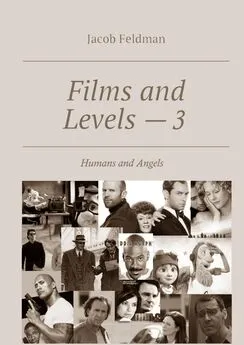Archi Devi Dasi (Ekmekchjan Adelaida) - Aryans and We
- Название:Aryans and We
- Автор:
- Жанр:
- Издательство:неизвестно
- Год:2021
- ISBN:нет данных
- Рейтинг:
- Избранное:Добавить в избранное
-
Отзывы:
-
Ваша оценка:
Archi Devi Dasi (Ekmekchjan Adelaida) - Aryans and We краткое содержание
Aryans and We - читать онлайн бесплатно ознакомительный отрывок
Интервал:
Закладка:
The material world is described as the liaison world of the three gunas of nature (bonds of attachment and hatred). The nature obeys cause-effect laws. The spiritual world obeys the parallel law, there is no time factor there. In other words, there is always the present time there, where any event exists eternally. This is so because the spiritual consciousness never treats any one so that a reaction would be needed. For the unprepared reader this subject is very serious and difficult to understand. The material world obeys the law of sequence (the queue) as here contradictory desires should be realized. Such desires could not be fulfilled simultaneously. We all want to be God, but God is only one, therefore there is the need for the queue: today I have the chance to be God (the controller), tomorrow someone else will have it. Therefore, there is no present time here. Only the past and the future exist in the material world. The old has gone like the water running through fingers.
In the spiritual world, living beings show attachment to other beings and God. There such attachment is the source of bliss as it is addressed to perfect personalities. While in the material world, a living being remembers that the attachment was the source of the infinite bliss and tries to feel the bliss here by attachment to different personalities. But in the material world consciousness of all living beings is contaminated. This contamination makes them imperfect, but an imperfect personality from its inception is not able to give happiness. Soul cannot get rid of its ability to develop attachments. In fact, soul can never get rid of its nature of eternity, enjoyment and knowledge. In the spiritual world, all living beings associate with each other and the Lord. This association brings happiness. We subconsciously “remember” this happiness and remember that we got it via association. In the material world, this attachment trait puts us on the spot. The Bhagavad-Gita describes this process as follows (chapter 2, verses 62, 63):
While contemplating the objects of the senses, a person develops attachment for them, and from such attachment lust develops, and from lust anger arises.
From anger, delusion arises, and from delusion bewilderment of memory. When memory is bewildered, intelligence is lost, and when intelligence is lost, one falls down again into the material pool.
Thus, the material absorption starts with the misuse of our ability for attachment. Happiness of soul is infinitely dependent on its relations with the Lord. This very inclination to associate causes sufferings to conditioned persons with material consciousness. Egocentric material consciousness makes a person lose the spiritual perfection. In the material world, a person can be attracted by another person but in the process of association it is doomed for а disappointment. Indeed, any time when we look for happiness in association, we want to experience that feeling which we had in the spiritual world associating with the Lord and His devotees. Dissatisfaction which appears as the result of imperfect association degrades to violence via which we want by all means to get that spiritual enjoyment which we remember of. This state is like certain madness when we take someone by the scruff of the neck and say, “Give me happiness, hear me? Give it, just as you choose! Ah, do not you give it? Well, then take that! And that!", and there starts the chain of violence. While a conditioned living being has some hopes for happiness, it flatters, but when it loses the hope, it “goes beast-mode” when it is under the influence of ignorance; or becomes a philosopher if it is under the influence of goodness. In the material world, a living being gets entangled as it develops incorrect attachments and as a consequence becomes disappointed. This is what the material world is for, for us at every step to realize a simple truth: happiness came to us only from association with the Lord and His devotees. Although not all living beings come to this conclusion when disappointment or suffering (which is the same) knocks at the door. Personal attitude to suffering depends on which condition (the guna) one is under. Here we will try to briefly and easily explain the Aryan view point on cause-and-effect relationships functioning in the material world. Cause-and-effect relationships of the material world are called gunas. The guna means the rope. The guna, thus, is that law with which the material world ties us to the particular cause-and-effect mechanism of the nature according to our merits. To begin with, all living beings in this world have got four defects:
1)Imperfect senses.
2)The tendency to commit mistakes.
3)The tendency to cheat.
4)The tendency to be illusioned (be ignorant).
Our intelligence is imperfect. This is an unquestionable fact. Anyone based on intelligence can understand only part of the truth. One-sided perception of the truth cannot fully reflect it all and so a person based on own intelligence cannot make right decisions. We draw the special attention to intelligence as intelligence is the principal sense. The intelligence can be said to be the reservoir of our beliefs. The system of values available by it has spurs on to one or another action. As for other senses, the Aryans specify the two following levels of them:
1)Gross senses: the eyes (vision), nose (smell), ears (sound), tongue (taste), skin (touch). These five are called sense perceptions. There are also working senses: hands, legs, anus and genitals.
2)Subtle senses: mind, intelligence, false-self (“false ego”).
Gross senses serve to form perceptions of the material world and of objects of sensory pleasures which exist there. Gross senses do not qualify the information. They are just its indifferent conductors. This is evidenced by the fact that the same information has got a different value for different beings. For instance, a pig finds feces tasteful but for a human it is something disgusting. It means that acceptability of the information does not depend on senses but on preferences of the certain personality, therefore subtle senses are of more crucial significance.
Mind. Mind has got five functions: to desire (want, do not want) (1), to feel (2), to think (3), to plan (4), to regret (5). A person communicates with the external world with these functions. The first and deciding function is to desire. Mind causes sense organs to contact with one or another material object according to its desires. To fulfill its desires, mind starts planning (dreaming). If plans (dreams) fail, it regrets or grieves. Grieving, therefore, is the function of the past, desiring is of the present and planning is of the future. Senses executing orders of mind contact with certain objects of the material world. Mind decides to what extent this object meets its desires. When mind has made its choice, the game is started by intelligence which is the most important element.
Intelligence. Intelligence has also got five functions: correct understanding (1), doubt (2), incorrect understanding (3), sleep (rest) (4), memory (5). Intelligence develops correct understanding only when it is based on the Vedas. The Vedas are God’s opinion on all of the issues related both to the material and spiritual worlds. The Aryans are very humble and modest personalities and they, thus, do not trust their experience and intelligence and refer with all issues to God. To defer to His opinion, one should know Him well. It is remarkable that the dominating belief in the Aryans’ society was that God never leaves living beings without His care in any matter. Indeed, we can find that practically for any matter the Vedas have got the respective sections with the comprehensive knowledge presented. The main idea is that an imperfect living being cannot create a perfect knowledge. Such knowledge can be given only by the One Who has created all these because only He or the one authorized by Him perfectly knows how He has done it. The Aryans, therefore, made great efforts to put intelligence of all members of society from the very childhood under control of the Vedas. Such dependence ensured noble human qualities which were very important for the Aryan society. The knowledge which was not based on the Vedas was considered incorrect. At first glance it seems that such approach actually limits human capabilities to experience. But there arises the question: what is the pleasure of thinking unlimitedly free but equally unlimitedly wrong? The fact is that the Aryans knew how to bring up personalities with very noble qualities and developed intelligence. When we read about such personalities, from the position of our “development”, we can say only, “It is a fairy-tale. It cannot be true”. In this way we endorse our infirmity.
The other very important function of intelligence is doubt. When mind and senses present new information to intelligence, the latter meets it with the function of doubt. Further, to develop the correct understanding of the information received, it is necessary for intelligence to have the correct system of values. The Aryans, therefore, laid special emphasis on education. Education determines the system of values which enables to correctly accept or reject the information received, and a correct choice determines the whole life of a person. The quality of intelligence determines actions, the destiny, the place of stay after death. If consciousness is poorly armored, it becomes a toy in the hands of mind. Such personalities happen to be slaves of their tongue, stomach and genitals; they do not have any system of values except for satisfaction of the needs of their bodies. The Aryans did not accept such personalities in their society, they called them mlechkhas, yavanas, rakshasas, i.e. persons who were dependent on the dictate of senses being at the level just above animals.
In the Bhagavad-Gita (chapter 15, text 15) Lord Krishna says:
I am seated in everyone's heart, and from Me come remembrance, knowledge and forgetfulness. By all the Vedas am I to be known; indeed I am the compiler of Vedānta, and I am the knower of the Vedas.
For correct understanding of the Aryan civilization, this text is very important. When we understand the importance of knowledge (the system of values) for making society and try to make all members of society learned, we face an interesting phenomenon. People turn out to have different “perceptive apparatus”. The modern science cannot give reasons for or likely tries to explain this phenomenon with genetics. Here one can find the answer on this question. As already said, one of the backbones of the Aryan philosophy is the concept of reincarnation. We have mentioned this concept but have not given it enough consideration. In fact, this concept is the basis of the behavior of the Aryans. Now it is time to discuss it in more detail.
We have noted above, that there is no any other concept in the world but for the Aryans’ that answers the question: why living beings of the same form of life are born in different conditions. For instance, people are born in Russia but one is born in a rich family and another is born in a poor family, one is beautiful and another is not, etc. It is a very important point. The correct understanding of this aspect determines the correct direction of our efforts. What does the concept of reincarnation change when accepted? The most important thing – the object of accusation. When a source of problems is known, it is easy to find how to settle them and get rid of troubles. Usually when we are happy, we do not raise the question why we are happy, maybe we do not deserve this happiness? On the contrary, we always think that the destiny has finally estimated us according to our merits. But in trouble, we very often think that we have not deserved this suffering, why is it chasing us? When the concept of reincarnation is accepted, all these questions are removed from the agenda and become pointless. I exist. There exists the material world, my desires, efforts focused to fulfill these desires, sins made during this process. And there exists the Witness of my actions, the Supreme Personality of Godhead, who silently and patiently looks at what I do. The Supreme Personality of Godhead is not responsible for pious or sinful actions of living beings. A person can be pious and get to heaven or can commit sins and go to hell. Based on personality’s actions, He decides who this personality will be in the next life, what will be his/her destiny, what body he/she will be born in, whom to be born with, what kind of children he/she will have or he/she will have no children. But all His decisions depend on this person. There exist I, He, my actions in this life and past lives, this world and eternity. Such mentality has a significant impact on the human’s behavior. This very behavior was the distinctive feature of the Aryans. They did not believe that they were eternal but they lived this way. Consequently, the idea of the eternity refers us to our own inner world to seek for reasons of our sufferings. It is not the escape from life as some incompetent people assume but the correct approach to it. Neither personality nor situation can accidentally come to our life. Everything what happens to us is the result of our pious or sinful activities in our past lives. We get consciousness in accordance with these activities. The level of consciousness acuity depends on memory and the memory is granted by God. He specifies the power of our consciousness in accordance with efforts and actions made in past lives.
Читать дальшеИнтервал:
Закладка:










